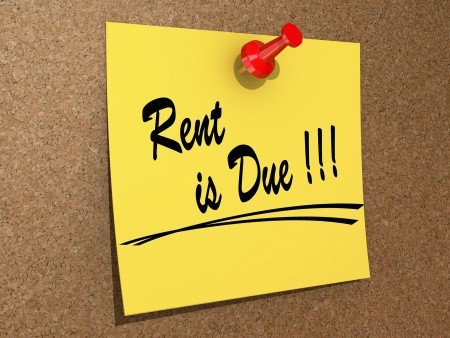What to do about unpaid rent?

It can be emotionally challenging to enforce rent payment provisions against a tenant who is having money trouble. My advice to landlord clients is to remain strict, but fair, in the enforcement of the terms of their leases, and to treat their tenants with respect and dignity during the process.
In doing so, the landlord’s rights remain protected and the tenants usually understand the situation and appreciate the straightforward, respectful approach taken by the landlord.
When a tenant is late with a rent payment, the first step for the landlord should be to review the terms of the lease. The lease may contain special instructions for how to proceed when rent is unpaid. Many leases contain a five-day grace period before the tenant is in default, and before late penalties or other consequences begin to accrue.
In the strict-but-fair approach, if rent remains unpaid after expiration of that grace period, the landlord should usually serve a “3-Day Notice to Pay Rent or Quit” to the tenant, although some leases may require notice periods longer than three days. The law requires very specific language that a Notice to Pay Rent or Quit must contain for the notice to be enforceable, so this form should be obtained from a reliable source such as an attorney.
During the notice period, the landlord should continue to have open and honest discussions with the tenant about the tenant’s ability and intention to pay the rent. If rent is not paid within the notice period, the notice has the effect of terminating the tenant’s right to remain in possession of the property, creating the basis for further action in the event rent remains unpaid. It does not automatically entitle the landlord to take possession of the property.
Most of the time, after the notice has been posted, rent will be paid. If rent remains unpaid after the notice has expired, it may be time to engage an attorney and begin the unlawful detainer (eviction) process. An unlawful detainer is a lawsuit in which the landlord sues the tenant for legal recovery of the property, for past due rent, and for other costs that the landlord may have incurred.
The process can be expensive, and generally takes at least six to eight weeks to complete, if not longer. The court must enter judgment in favor of the landlord before the landlord can request that the sheriff’s department assist in recovering possession of the property. Most of the time, the parties can avoid going to trial by reaching an out-of-court agreement in the form of a settlement or stipulation. Coming to an agreement out of court is generally better for all parties involved.
Source: Napa Valley Register















 Accessibility
Accessibility